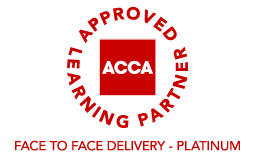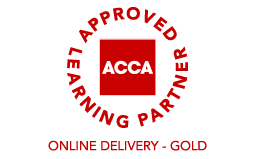Should I do ACCA immediately after high school or get a degree first? This may be a question you’ve asked yourself many times but have yet to answer.
ACCA is short for the Association of Chartered Certified Accountants, a membership body that accredits professional accountants globally. It has almost a quarter of a million members in 180 countries and administers and awards the ACCA qualification, an internationally recognized designation for professional accountants.
If you want accountancy as a career, you can become a professional accountant by earning the ACCA designation. There are two primary ways you can do this.
On the one hand, you can go to university, earn a degree in accounting or a related program, and start ACCA after graduating from university. On the other hand, you can start working on your ACCA designation right after high school.
Is it good to start ACCA immediately after graduating from uni? If you choose the conventional path and go to university after high school to earn a degree in accounting, entering the ACCA qualification program right after university is an excellent strategy to become a professional accountant.
What if you don’t want to attend university but still want an ACCA qualification? Can you do ACCA after school? The answer is a resounding yes.
In this post, we discuss the benefits of taking ACCA right after school and the ACCA minimum requirements for entry into the ACCA program for school leavers.
ACCA Minimum Requirements for School Leavers
Successfully completing the ACCA qualification program will earn you the ACCA designation and make you a professional accountant. Where and how do you start? It depends on your current level.
If you meet the ACCA minimum requirements for program entry
If you have completed Year 13 in a British school or Grade 12 in an American, Indian or International Baccalaureate school, you probably meet the minimum entrance requirements, which are:
- You have three General Certificates of Secondary Education (GCSEs) and two A Levels.
- Your GCSEs and A-Levels are in five different subjects.
- Two of these five subjects must be math and English.
In this case, you’ll start your ACCA journey at the Fundamental level. To complete the program, you’ll need to:
- Complete 13 ACCA exams. There are 15 ACCA knowledge papers, but you choose only two of the four Strategic Professional Options exams.
- Accrue 36 months of work experience in relevant accounting or finance roles. You must log these experiences in your account at the ACCA portal, and a qualified practical experience supervisor must sign off on them.
- Finish the Ethics and Professional Skills Module (EPSM).
If you don’t meet the minimum entrance requirements for the ACCA program
If you don’t have three GCSEs and two A-Levels (or their equivalent) in five different subjects, or if your GCSEs and A-Levels don’t include mathematics or English, you won’t meet the minimum requirements. Even so, there’s a way you can enter the ACCA program.
You start with the Foundations in Accountancy (FIA) program and earn foundation-level qualifications. ACCA foundation-level qualifications have no minimum entry requirements.
The ACCA Foundations in Accountancy program has three levels:
- Diploma in Accounting and Business (Regulated Qualifications Framework Level 4)
- Diploma in Financial Management Accounting (RQF Level 3)
- Diploma in Financial Management Accounting (RQF Level 2)
The RQF Level 4 Diploma in Accounting and Business is the most efficient route. After attaining this foundation-level qualification, you will be automatically opted in to transfer to the ACCA Qualification program.
From that point onwards, you will proceed like a fundamental-level ACCA qualification candidate and complete the remaining exams, log 36 months of practical and relevant experience, and complete the ethics and professional skills module.
Consider joining an accelerated ACCA after-school program. This will give you a head start on ACCA knowledge papers, an ACCA Diploma in Accounting and Business and, eventually, entry into the ACCA qualification program.
The Benefits of Joining the ACCA Program Right After School
Indeed, you can join the ACCA qualification or the ACCA foundation-level program after high school. Why do this, though? What are the benefits of joining the ACCA program after leaving school?
1. Cost-Effectiveness
Joining an accelerated ACCA program right after leaving school is a cost-effective way of gaining the ACCA qualification. You can spend your time studying for ACCA exams.
This is an effective use of your time, energy, and resources. Your efforts contribute directly to passing ACCA exams, and you can even acquire foundation-level qualifications you can use as stepping stones towards an ACCA professional qualification.
The alternative is to apply for admission to a university, earn a bachelor’s degree and wait until you leave university before joining the ACCA qualification program at the professional level. In this case, your studies will be more generalized. You’ll study subjects that will not directly contribute to your goal of achieving an ACCA qualification.
2. Affordability
An undergraduate degree is considerably more expensive than ACCA courses. Additionally, you can even work and study for the ACCA papers simultaneously, earning money instead of racking up student loans.
3. Speed and Flexibility
ACCA requires 36 months of experience in a relevant accounting or finance role. You can accumulate this work experience faster if you enter the ACCA program immediately after leaving school.
While enrolled in the ACCA program (or an accelerated foundation-level ACCA program), you can apply for work as an apprentice, a trainee or an entry-level employee at a company. You can work full-time as an accounting clerk or staff, entering data, updating reports, and reconciling statements. You may even come up through the ranks, handling more responsibilities and accomplishing more advanced tasks.
All your work experiences will count towards the ACCA program’s three-year practical work experience requirement. Consequently, you’ll finish your practical experience requirement much sooner.
Compare this to going through the university route. You’ll barely have time to work in a relevant role. Even if you successfully find a related job, you’ll probably be able to do it only part-time. Therefore, it will take you longer to finish your practical experience requirement.
ACCA After School
Are you wondering, “Should I do ACCA immediately after high school or get a degree first?” You may do either, but there are benefits to getting into ACCA immediately after leaving school.
How can you do ACCA after school? If you have the ACCA minimum requirements of three GCSEs and two A-Levels in five distinct subjects, including math and English, you can register for an ACCA course and enter the ACCA qualification program directly. Alternatively, you can join a jumpstart program and be on the fast track toward an ACCA foundation-level qualification you can use as a stepping stone to the ACCA qualification program.
Phoenix FT is a leading online financial training institute in the United Arab Emirates. We offer an ACCA course, a CFA course, and an ACCA jumpstart program that will help you pass your first four ACCA exams quickly, improve your soft skills and boost your employability.
Contact us to learn more about our accelerated ACCA program if you’re set on a career in accountancy and finance.



